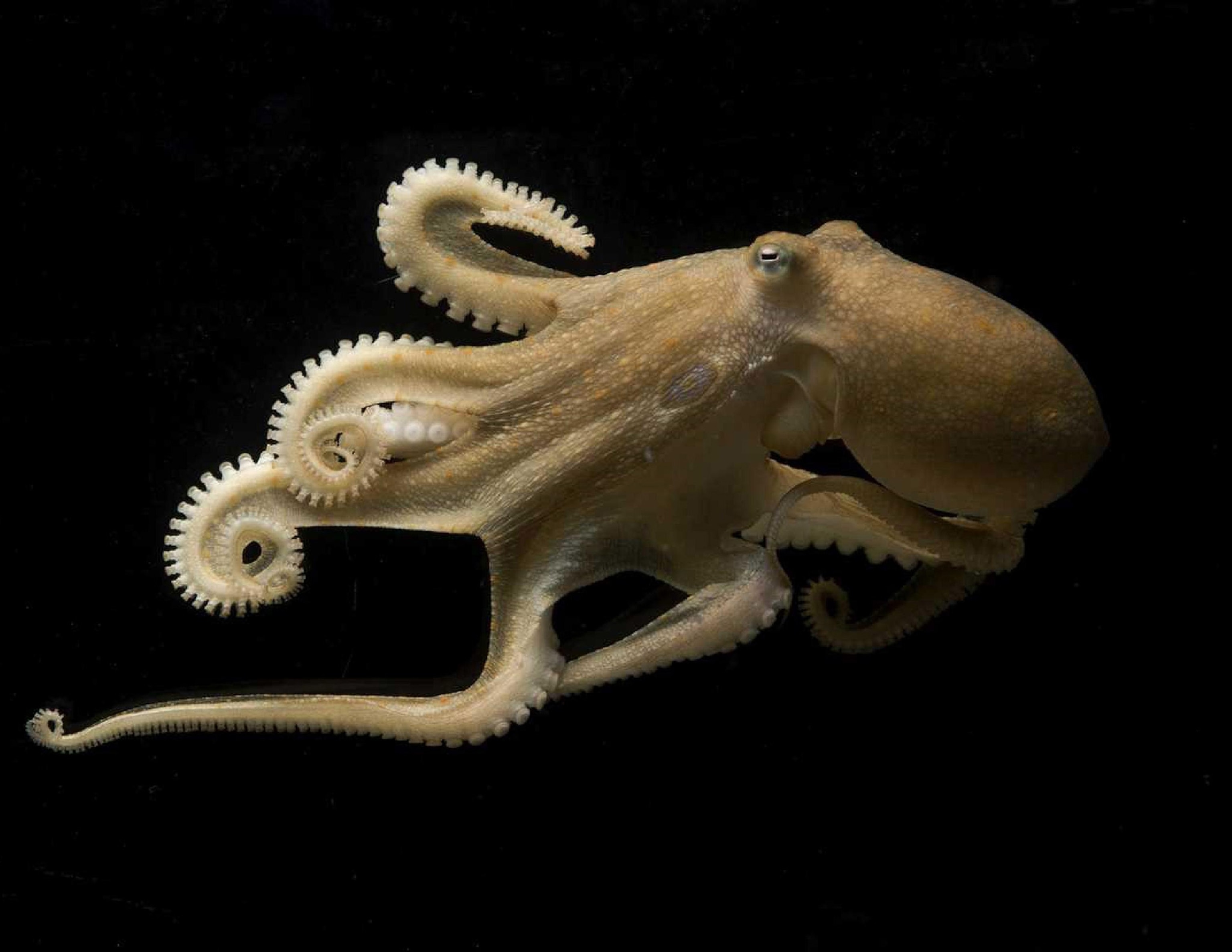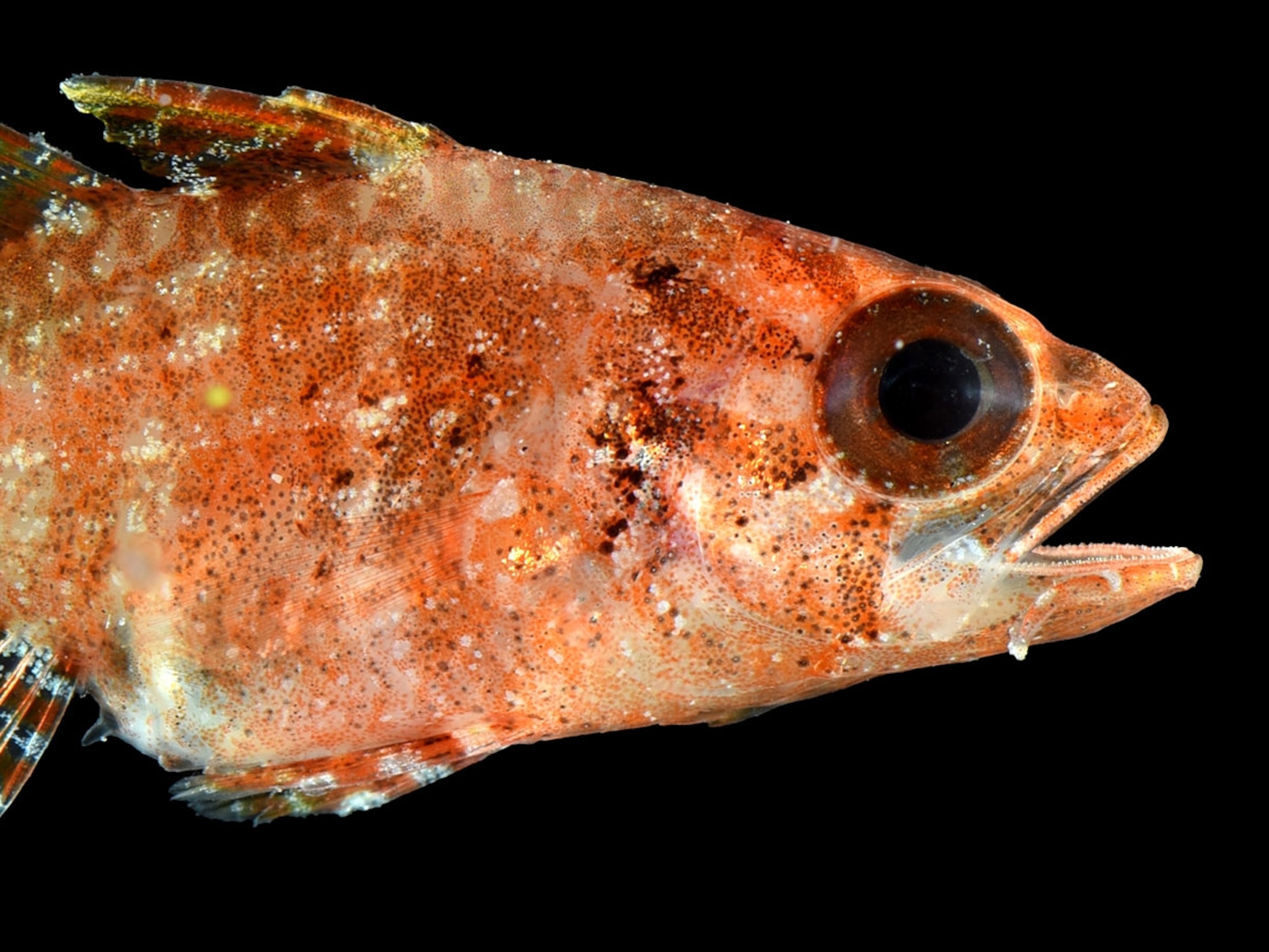
When it’s too cold, these octopuses just rewire their brains
We’re just getting a handle on the elaborate nervous systems of cephalopods—and the surprising ways they can adjust to their surroundings.
Octopuses and other cephalopods are among the most intelligent animals that are not vertebrates, capable of executing complex tasks like solving puzzles. But their brains are very different from ours, with elaborate nervous systems that extend throughout their bodies and function in surprising ways that scientists are just beginning to grasp.
For example, cephalopods have an unparalleled ability to edit their RNA, the molecules that provide essential functions such as transferring information and making proteins. A new study in the journal Cell details how two species of octopus, found off the coast of southern California, can alter huge swaths of their RNA in response to sudden temperature swings.
Some of the RNA modifications affect which proteins are made in the nervous system, suggesting the edits help keep things running smoothly as conditions change. Those proteins can be very sensitive to temperature fluctuations; too hot or too cold, and their ability to function drops. A change of just a few degrees can be lethal. This is a problem particularly for cold-blooded animals like octopuses, which are at the whims of their surroundings for temperature control.
“Water is a pretty cruel substrate to live in,” says Joshua Rosenthal, a neurobiologist at the Marine Biological Laboratory in Woods Hole, Massachusetts, who led the new study. “It’s a real challenge to think at different temperatures. Nervous systems are just that complex.”
Neurological acclimation
A range of animals, from squids to squirrels and humans, are known to recode their RNA. These natural alterations change the messages that get sent by genes, subtly altering the molecules used to build proteins. But the changes are not permanent.
Rosenthal and others previously found that cephalopods have an unusually high ability to perform this genetic trick. While humans have hundreds of known “editing sites” in their genomes, cephalopods have tens of thousands. The scientists set out to study what benefits such widespread but temporary editing could bring the organisms.
Acclimation, or adjusting to new environmental conditions, was the “obvious hypothesis,” Rosenthal says. Having the ability to edit RNA on the fly could allow the animals to optimize proteins in the nervous system and elsewhere according to ambient temperature. It’s an idea that scientists have long considered, but one which has had a dearth of evidence at the molecular level.
To see if they could capture this biological rewiring in action, Rosenthal and colleagues focused on two well-studied proteins: kinesin, which ferries around important cellular material; and synaptotagmin, which is important for transferring signals between neurons. They chose to study Octopus bimaculoides, commonly known as the California two-spot octopus, because it has a well sequenced genome and naturally lives in a wide range of temperatures. (And, Rosenthal adds, because they’re chill during a move to a laboratory, unlike some other octopus species.)
To directly test whether sudden temperature changes led to more RNA editing, the researchers placed the octopuses in tanks and let them adjust for two to three weeks. Then the temperature was shifted to either 13 or 22 degrees Celsius over the course of 10 to 12 days and maintained for another 12 to 24 days.
The researchers then extracted RNA from the animals’ stellate ganglia, a part of the nervous system responsible for motor control, and studied how many RNA sites had been edited in the different environmental conditions. Even given cephalopods’ well-established ability to rewrite RNA, the researchers were surprised by the results. The bulk of the editing occurred within just hours of the temperature shift, trailing off within four days.
“It was pretty astounding,” Rosenthal says. “We were expecting a small number of sites to be temperature sensitive, maybe none. But about one third of them were strongly temperature sensitive.”
Recalibrating to the cold
As scientists delve further into how octopuses reconfigure their RNA in response to temperature changes, they can also explore what benefits this genetic tool may afford the animals as they navigate the ocean.
“It does seem like they’re doing something unique with this, offering them a way to flexibly respond to their environment,” says Kavita Rangan, a molecular biologist at the University of California San Diego who was not involved in the study. Rangan’s own work recently found similar temperature-driven RNA editing in squid, another cephalopod. “Editing is a mechanism that can generate a ton of protein variation, and some of that variation could be adaptive.”
One clue may be in the fact that the octopuses’ RNA editing was more extensive when the animals were in environments that got colder. In the warming experiment, there was only about a one percent increase, a result that may seem counterintuitive at first.
“In general, enzymes are more active the warmer you get. That’s just thermodynamics,” Rosenthal says. “Here we see greater editing in the cold.” Perhaps the relevant molecular structures are more stable in colder temperatures and therefore easier to edit, he adds, but confirming that would require further testing.
“Clearly, the organism is doing something quite important to adapt to temperature, but it’s really difficult to assess the functional consequence of this editing,” says Jin Billy Li, a geneticist at Stanford University who was not involved in the study. “There are a lot of questions to ask from here, but this is really important and interesting work.”







